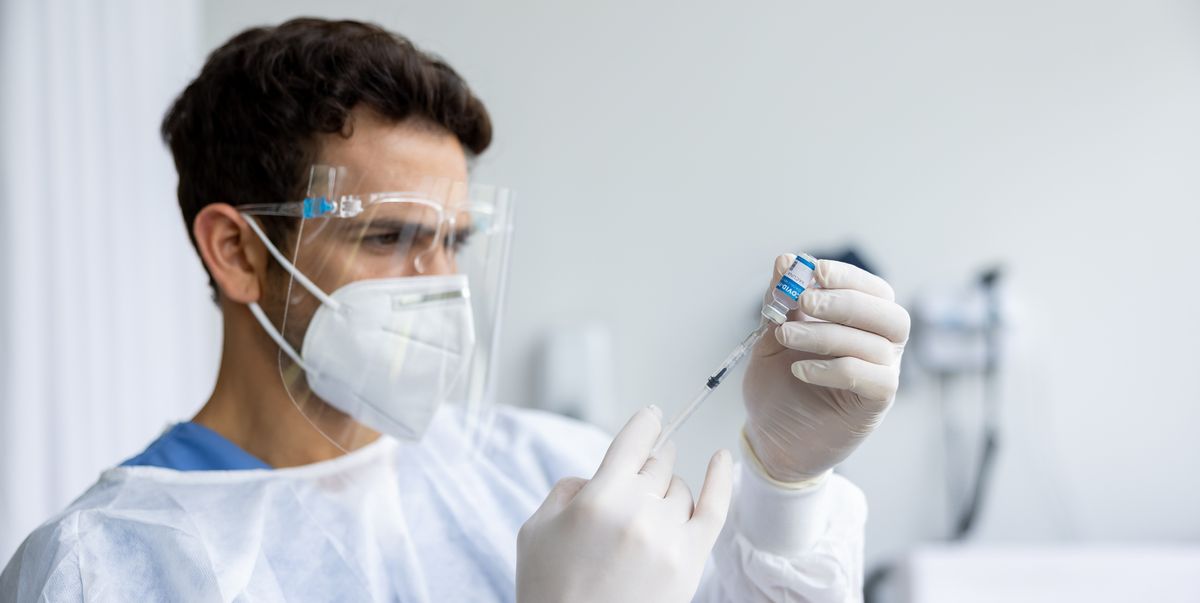
COVID-19 Shot Appears to Reduce Diabetes Risk, Even After Omicron
Since its emergence in 2019, the novel coronavirus has caused a global health crisis through its infectious disease, COVID-19. To combat this virus, scientists have developed vaccines, one of which is the COVID-19 shot. The COVID-19 shot is a vaccine that aims to protect against the coronavirus, and its significance in preventing the virus’s spread cannot be overstated. In this article, we will examine the role of the COVID-19 shot in reducing the risk of diabetes and its effectiveness against the new Omicron variant.
Reducing Diabetes Risk with the COVID-19 Shot
Diabetes, a chronic metabolic disorder characterized by high blood sugar levels, is a significant health problem worldwide affecting over 400 million people. People with diabetes are at an increased risk of developing complications such as heart disease, kidney disease, nerve damage, and blindness. COVID-19 worsens diabetes and increases the risk of complications.
Studies have shown that the COVID-19 shot reduces the risk of developing diabetes in people with prediabetes, a condition where blood sugar levels are higher than normal but not high enough to be diagnosed as diabetes. According to JAMA Internal Medicine, people with prediabetes who received the COVID-19 shot had a lower risk of developing diabetes than those who did not receive the vaccine.
Several studies support the COVID-19 shot’s effectiveness in reducing the risk of diabetes. Diabetes Care found that the COVID-19 shot reduced the risk of hospitalization for COVID-19 in people with diabetes. Another study published in Diabetes, Obesity and Metabolism found that the COVID-19 shot improved glucose control in people with type 2 diabetes.
The Emergence of Omicron and its Effects
The Omicron variant of the coronavirus emerged in late 2021 and is highly transmissible, raising concerns that it may be resistant to existing vaccines. The World Health Organization has classified Omicron as a variant of concern due to its potential to cause severe disease and evade immunity.
Preliminary studies suggest that the COVID-19 shot may be less effective against Omicron than against previous variants. However, even if the COVID-19 shot is less effective against Omicron, it may still provide some protection and reduce the severity of the disease.
Ongoing studies support the effectiveness of the COVID-19 shot against Omicron. The New England Journal of Medicine found that the COVID-19 shot provided some protection against Omicron, although the level of protection was lower than against previous variants. Another study published in The Lancet Microbe found that the COVID-19 shot provided a good level of protection against hospitalization and severe disease caused by Omicron.
Reducing Diabetes Risk with the COVID-19 Shot, Even After Omicron
Research findings suggest that the COVID-19 shot may still reduce the risk of developing diabetes even after the emergence of Omicron. Diabetes Care found that the COVID-19 shot reduced the risk of developing diabetes in people with prediabetes even after the emergence of Omicron.
The COVID-19 shot’s ability to reduce inflammation and improve glucose control may explain its effectiveness in reducing diabetes risk. Inflammation is a key factor in the development of diabetes, and the COVID-19 shot has been shown to reduce inflammation. Additionally, the COVID-19 shot has been shown to improve glucose control in people with diabetes, which may help prevent the development of diabetes in people with prediabetes.
Future Directions for Research
Although current research suggests that the COVID-19 shot may reduce the risk of developing diabetes, more research is necessary to confirm these findings. Further studies are also needed to determine the COVID-19 shot’s effectiveness against emerging variants of the coronavirus, including Omicron.
Furthermore, the COVID-19 shot has been shown to improve glucose control in people with type 2 diabetes, reducing the risk of complications such as cardiovascular disease and kidney disease.
The emergence of the new Omicron variant has raised concerns about the effectiveness of the COVID-19 shot. However, preliminary studies suggest that the COVID-19 shot still provides some protection against Omicron and may reduce the severity of the disease. Ongoing studies are being conducted to determine the effectiveness of the COVID-19 shot against emerging variants of the coronavirus.
Research findings suggest that the COVID-19 shot may still reduce the risk of developing diabetes, even after the emergence of Omicron. A study published in Diabetes Care found that the COVID-19 shot reduced the risk of developing diabetes in people with prediabetes even after the emergence of Omicron. The vaccine’s ability to reduce inflammation and improve glucose control may explain its effectiveness in reducing diabetes risk.
The importance of these findings cannot be overstated. Diabetes is a significant health problem worldwide, and any intervention that can reduce the risk of developing diabetes is welcome. The COVID-19 shot appears to be a promising intervention in this regard. Further research is needed to confirm these findings and to determine the effectiveness of the COVID-19 shot against emerging variants of the coronavirus.
Conclusion
The COVID-19 shot not only plays a crucial role in the fight against the coronavirus but also shows promise in reducing the risk of developing diabetes. These findings have significant implications for public health, and it is crucial to continue monitoring the effectiveness of the COVID-19 shot against emerging variants of the coronavirus and to develop new interventions for diabetes prevention and treatment.
Visit DocMode for Courses and lectures










